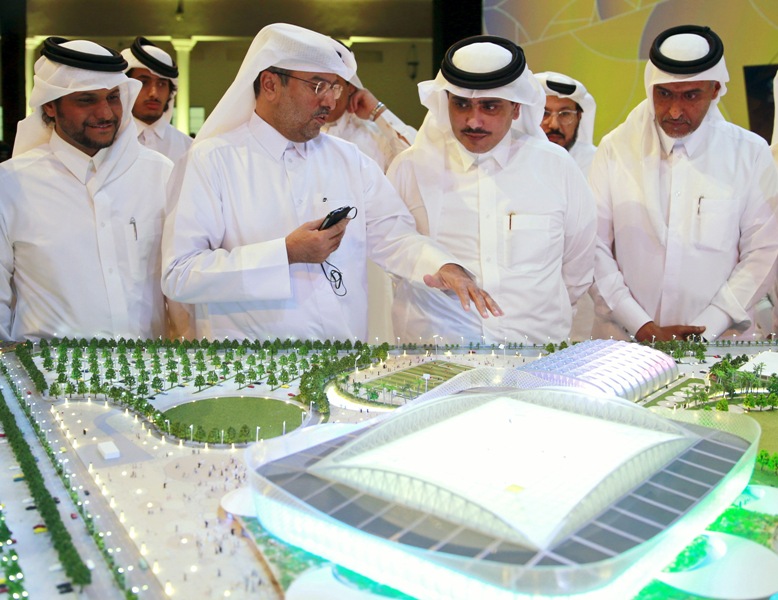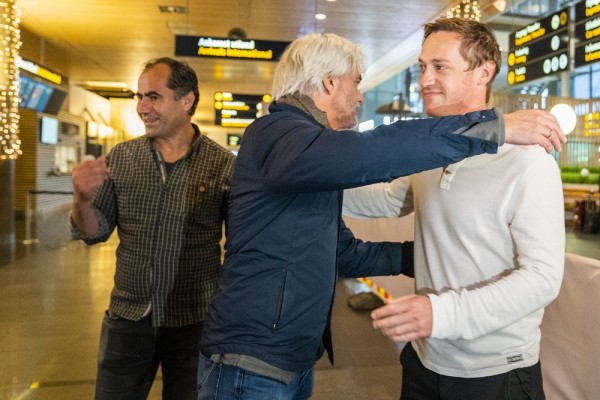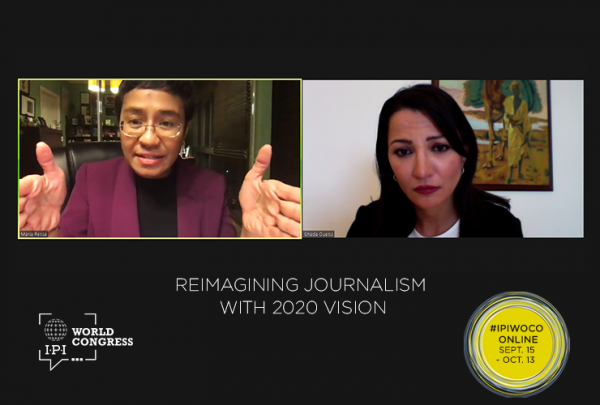The role of the media is not to act as a public relations machine for governments, the International Press Institute (IPI) emphasised today following the dramatic arrest of a BBC reporting team in Qatar that had apparently deviated from an officially approved tour of migrant worker facilities.
In a BBC blog post first published on May 18, Mark Lobel, BBC Middle East business correspondent, revealed that he and his crew consisting of a translator, a driver and a cameraman had been arrested on May 2, 2015, while gathering extra material for their reporting in Doha. Lobel was among several international journalists invited by the Qatari government to visit new “labour villages” for workers building facilities for the 2022 FIFA World Cup. According to Lobel and media reports, the tour was organised in partnership with a London-based public relations firm.
Qatar has been criticised for what media outlets and human-rights organisations have characterised as the exploitation of the thousands of migrant workers who make up the majority of the country’s labour force. A 2013 investigation by Britain’s The Guardian revealed what the paper called “slave-like conditions” for workers and in a 2014 report Human Rights Watch (HRW) reported that migrant labourers “continue to experience serious rights violations” and said that many “live in cramped, unsanitary conditions”.
In the post, Lobel recounted that he and his colleagues were on their way back from filming a group of workers from Nepal when “[s]uddenly, eight white cars surrounded our vehicle and directed us on to a side road at speed”. Lobel wrote that he and his colleagues were subject to “hostile” questioning and detained for two days without charges. During the questioning, Lobel was reportedly shown pictures of himself that indicated that he and his team had been under surveillance by Qatari authorities. Officials were also said to have seized reporting equipment and hard drives from the BBC team.
Lobel added that after 30 hours of waiting, one of the officers told him, “This is not Disneyland” and “You can’t stick your camera anywhere”.
Appearing to defend the arrests, the Qatari government was quoted as stating on May 18: “Perhaps anticipating that the government would not provide this sort of access, the BBC crew decided to do their own site visits and interviews in the days leading up to the planned tour. In doing so, they trespassed on private property, which is against the law in Qatar just as it is in most countries.”
But IPI Executive Director Barbara Trionfi suggested that the incident highlighted a fundamental misunderstanding about journalistic work.
“The role of the media in society is not to act as a PR agent for any individual, government, or corporation, but rather to properly inform the public on issues that matter, one of which is undoubtedly the treatment of migrant workers in Qatar. It is therefore only natural – and, indeed, desirable – that Mr. Lobel’s team should have sought to investigate angles to the story that they judged may not have been sufficiently present in a government-arranged, PR-managed tour.
“We are greatly disturbed by the unjustified arrest and treatment of Mr. Lobel and his colleagues, which appears to be an attempt to discourage journalistic investigation rather than a response to alleged trespassing on private property. We urge the Qatari authorities to immediately return any equipment taken from the BBC crew and to guarantee journalists’ freedom of movement while they report in Qatar.”
The BBC in a statement said it welcomed the release of its reporting team but “deplore[d] that they were detained in the first place,” adding: “Their presence in Qatar was no secret and they were engaged in a perfectly proper piece of journalism.” The broadcaster also demanded an explanation from FIFA.
Football’s global governing body reportedly responded by stating: “Any instance relating to an apparent restriction of press freedom is of concern to FIFA and will be looked into with the seriousness it deserves.”
This is not the first incident of this nature in Qatar. A team from the German public broadcaster ARD filming a critical documentary entitled “The Selling of Football – Sepp Blatter and the power of FIFA” was arrested in March and detained for 14 hours in Doha. The Qatari government on that occasion maintained that the team did not have permission to film. According to media reports, authorities seized the journalists’ equipment, including laptops and mobile phones, and did not return it until weeks later, albeit with the data having been wiped clean.
IPI will hold its annual World Congress in Doha in 2016. Sports journalism and the coverage of sporting events, including the 2022 World Cup, are planned to be among the key topics of discussion. IPI’s most recent World Congress was held March 27 to 29 in Yangon, Myanmar.



